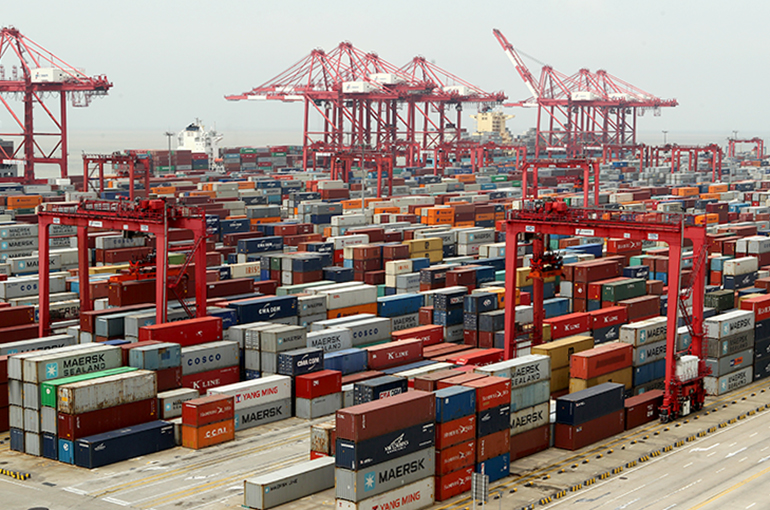 CPC Central Committee Signals Foreign Investment, Trade Reform at Third Plenary Session, Ex-Minister Says
CPC Central Committee Signals Foreign Investment, Trade Reform at Third Plenary Session, Ex-Minister Says(Yicai) July 23 -- The 20th Central Committee of the Communist Party of China suggested to “develop new institutions for a higher-standard open economy” in the resolution adopted at its third plenary session, indicating that the country will launch a new round of institutional reform in foreign investment and trade, according to the former vice minister of commerce.
“The decision emphasizes that a lot of work should be done on equal rights, equal rules, and equal opportunities for foreign investment,” Wei Jianguo, who is now vice chairman of the China Center for International Economic Exchanges, told Yicai in an interview after the resolution was published on July 21.
China has lifted all restrictions on foreign investment access in the manufacturing sector, Wei said. The key going forward lies in policy implementation, while the focus areas for further opening-up have been clearly defined, he said.
According to the resolution, China will “foster a first-rate business environment that is market-oriented, law-based, and internationalized and protect the rights and interests of foreign investors in accordance with the law.
“We will expand the catalog of encouraged industries for foreign investment, appropriately shorten the negative list for foreign investment, remove all market access restrictions in the manufacturing sector, and promote wider opening with regard to telecommunications, the internet, education, culture, medical services, and other sectors in a well-conceived way,” the document said.
The resolution also mentions plans to “further reform the institutions and mechanisms for promoting foreign investment, ensure national treatment for foreign-funded enterprises in terms of access to factors of production, license application, standards setting, and government procurement, and support them in collaborating with upstream and downstream enterprises in industrial chains.”
Temporary Drop in Foreign Investment
Foreign investment in actual use in China fell 29 percent to CNY498.9 billion (USD68.6 billion) in the first six months of this year, according to commerce ministry data, while 26,870 new foreign-invested companies were set up in the same period, a 14 percent gain on a year earlier.
Affected by changes in the international environment, foreign investment in actual use in China has declined temporarily, Han Wenxiu, deputy director of the General Office of the Central Financial and Economic Affairs Commission, said on July 19.
As the business environment improves and market opportunities rise, the country will attract more foreign investment, he added.
Building a Strong Trading Nation
“To transition from a major trading nation to a strong trading nation, China must provide institutional and policy support for foreign trade to achieve a sustainable global strategic layout,” Wei said.
On the matter of deepening reforms in the foreign trade system, the resolution proposes to "better coordinate trade policies with fiscal, tax, financial, and industrial policies, create a set of systems and policies to support efforts to build China into a strong trading nation, step up reforms to integrate domestic and foreign trade, and actively respond to trends in digital and green trade.”
The document also outlines specific measures, including “developing new regulatory approaches for customs clearance, taxation, and foreign exchange” and “developing digital trade in an innovative manner and promoting the development of integrated pilot zones for cross-border e-commerce” as well as “adopting innovative measures to boost trade in services and fully applying the negative list for cross-border trade in services."
China’s exports climbed 3.6 percent to USD1.71 trillion in the six months ended June 30 from a year earlier, while imports rose 2 percent to USD1.27 trillion, customs data showed on July 12. The trade surplus reached USD435 billion, after widening 8.6 percent.
Editors: Dou Shicong, Martin Kadiev